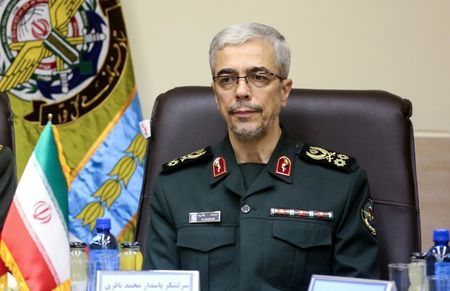The head of Iran’s armed forces demanded on Tuesday authorities in neighbouring Iraq hand over separatist Kurdish dissidents stationed there and close their bases, according to a report by the semi-official Fars news agency.
Major General Mohammad Baqeri was quoted three days after reports that Iran’s Revolutionary Guards fired seven missiles at the base of an Iranian Kurdish armed opposition group in northern Iraq, killing at least 11 people.
“The government of Iraq and the Kurdistan authorities should not allow existence of such bases in their territories and should hand over these separatist terrorists to Iran,” Baqeri said, according to Fars.
Sponsored
“If they cannot hand them over, then they should expel them ... It is Iran’s right to defend itself.”
Iranian missiles hit the headquarters of the Democratic Party of Iranian Kurdistan (PDKI), Iran’s Revolutionary Guards said on Sunday in a statement.
The PDKI is an armed opposition group that fights for greater autonomy for Iran’s Kurdish community. Shi’ite Muslim-dominated Iran has up to 10 million Kurdish citizens who are mostly Sunni. Iran accuses its regional rival Saudi Arabia of funding Kurdish armed groups.
“Provoked by some regional countries and America ... these separatist terrorists carried out some operations inside Iran ... such measures are unacceptable for Iran,” Baqeri said.
“The authorities of Iraq’s Kurdistan had repeatedly tried to stop them but the group was provoked by others.”
The PDKI denies receiving Saudi support and says Kurds have been forced to take up arms because they have no alternative to secure their political rights.
Riyadh in turn accuses Iran of stirring up trouble amongst the kingdom’s own Shi’ite minority, a charge Iranian officials have denied.
Iran is involved in a proxy war with Sunni Saudi Arabia in the Middle East, where Tehran backs President Bashar al-Assad in Syria’s civil war, Houthi forces in Yemen’s conflict and Lebanon’s Hezbollah.
Riyadh backed President Donald Trump’s decision in May to pull the United States out from a 2015 international nuclear deal with Iran and to reimpose sanctions on its arch-foe Tehran.


